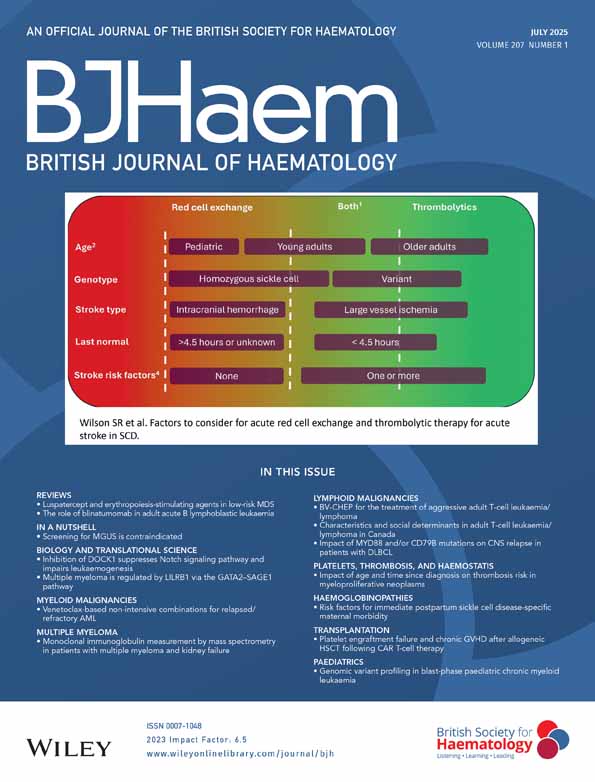Genomic RFLP typing of human platelet alloantigens Zw(PlA), Ko, Bak and Br (HPA-1, 2, 3, 5)
Abstract
Summary. The diallelic human platelet alloantigen systems 1–5 have been found to result from single base pair substitutions in the encoding genes of platelet membrane glycoproteins IIIa, Ib, IIb and Ia. This is the basis of DNA methods for determination of platelet alloantigens. In this study, 98 blood donors were typed in the HPA-1, 2, 3 systems and, for the first time, in the HPA-5 system. Serologically obtained data (MAIPA and platelet agglutination) were compared with results from analysis of restriction fragment length polymorphisms (RFLP). Discordances were found in the HPA-2 and 3 systems and can be ascribed to false typing results in both the serological and genomic methods. In the HPA-1, 2 and 5 systems, all samples were typed correctly with RFLP analysis. Serologically, two donors were falsely typed positive with anti-HPA-2b in platelet agglutination and one donor with anti-HPA-3a in MAIPA assay. In the HPA-3 system, another four donors were misinterpreted to be HPA-3 a negative in RFLP analysis. Possible technical problems in PCR-RFLP-typing are discussed and another strategy of HPA-1 typing using the restriction enzyme Scr FI is evaluated.




